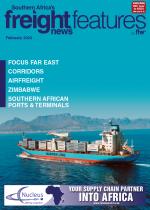Pr ivate terminal operators are investing millions in southern African ports, from Dar es Salaam in the east to Luanda in the west.Transnet is in the process of concessioning the operations of Durban’s Pier 2 (DC2) and the Ngqura Container Terminal (NCT), which will bring South Africa in line with its neighbours through a 25-year build, operate and transfer agreement.Operators have been shortlisted, and the adjudication is due to be completed in February.This comes at a time when the Tanzanian Ports Authority announced in a brief statement that it has “taken over the cargo handling services done by the Tanzania International Container Services (TICTS) Limited effectively as from January 1, 2023”. Hutchison Ports operated TICTs under a concession that expired in September 2022.There was a presumption that the concession would be extended as TICTS announced in November 2022 that it would invest a further $500 million in the 725-metre terminal located at berths 8 to 11.Hutchinson has upgraded the terminal and improved its efficiency to the point where it was attracting new calls from shipping lines. Further south, Japanese operator Vulcan Resources has taken over the role of Brazilian miner Vale, which sold its port interests and Mozambican coal assets to Jindal Shadeed Iron and Steel, of which Vulcan is a subsidiary.Nacala Logistics playing key role Nacala Logistics is a rail and port company, responsible for managing the multi-user port terminal of Nacala-à Velha and the 1 600-km rail link between Nacala, the Moatize coal fields in Mozambique and Malawi, through which it runs.Nacala Logistics represents Corredor Desenvolvimento Do Norte, Corredor Logistico Integrador de Nacala, Central East Africa Railways of Malawi which was privatised in 1999, and Vulcan ResourcesOne of the first moves by Jindal was to reroute the remaining coal exports through Beira to Nacala. This does not affect Cornelder de Mozambique (CdM), which heads up the consortium operating the Beira container, general cargo and grain terminals.The consortium consists of Porto e Caminhos de Ferro de Moçambique (CFM – Ports and Railways of Mozambique) and the Cornelder Group. Cornelder has been investing in Beira for over 20 years. The investment programme will see capacity increased from 300 000 TEUs a year to 700 000.CFM also has interests in the Maputo Port Development Company (MPDC), in partnership with Portus Indico, which is a joint venture by Grindrod, DP World and local company Mozambique Gestores.New options for mineral cargo MPDC is attracting mineral cargo away from Durban, with the container terminal DP World having made a breakthrough into the export of South African citrus in 2022. DP World is focusing on the back-of-port connections, and has established a bonded dry port on the Mozambican side of the border with South Africa at Komatipoort.It reduces paperwork and speeds up transit through the busy border post.Port of Lobito seeks private investmentThe Angolan government wants to use private investment to develop the Port of Lobito through the 1 300-km Benguela railroad, which provides the western Copperbelt with its shortest route to the sea.In January 2022 it was announced that China International Trust Investment Corporation and Shandong Port Group had been granted a 20-year concession to operate the Lobito multipurpose container and general cargo terminals.They will be in a strong position to attract cargo as Chinese companies have significant interest in both copper and cobalt mines in the DRC and Zambia.

